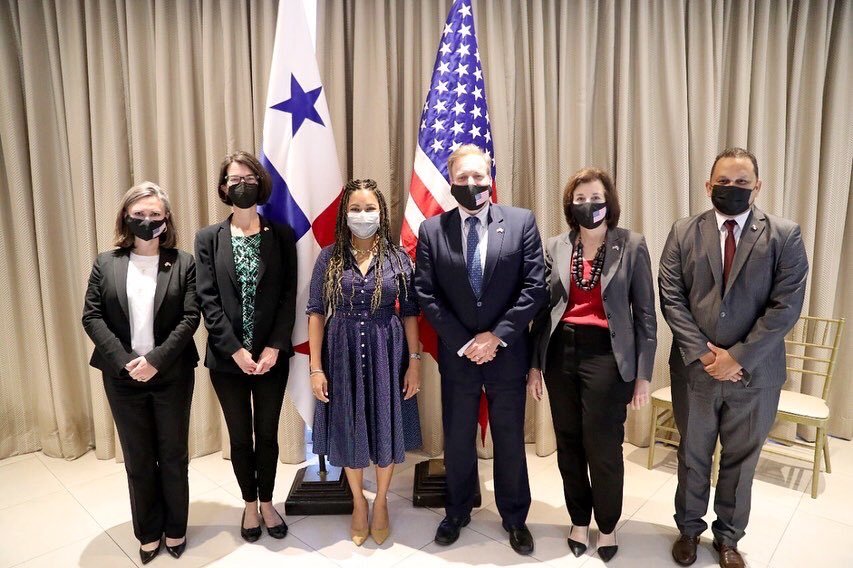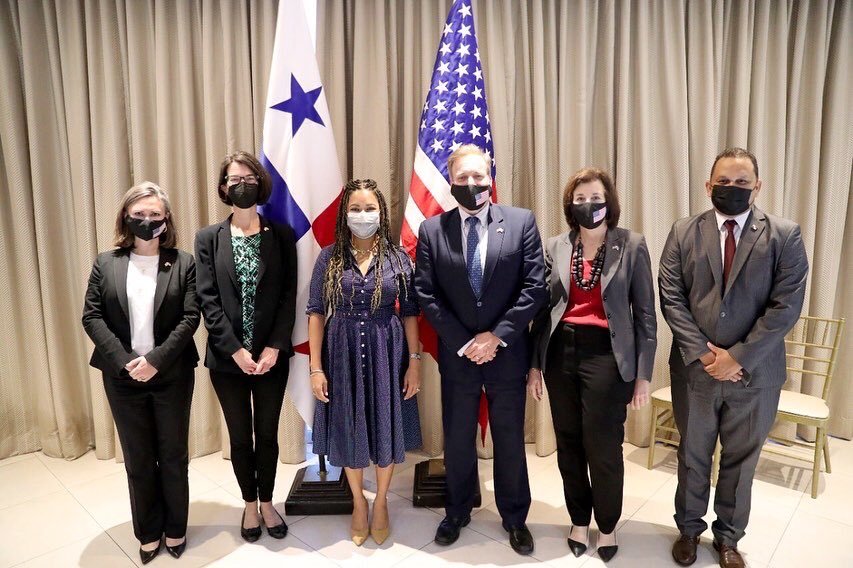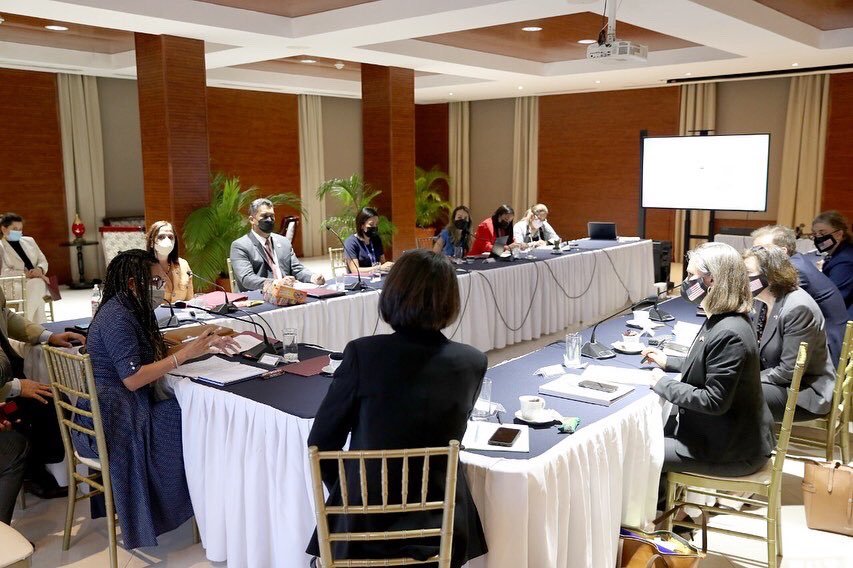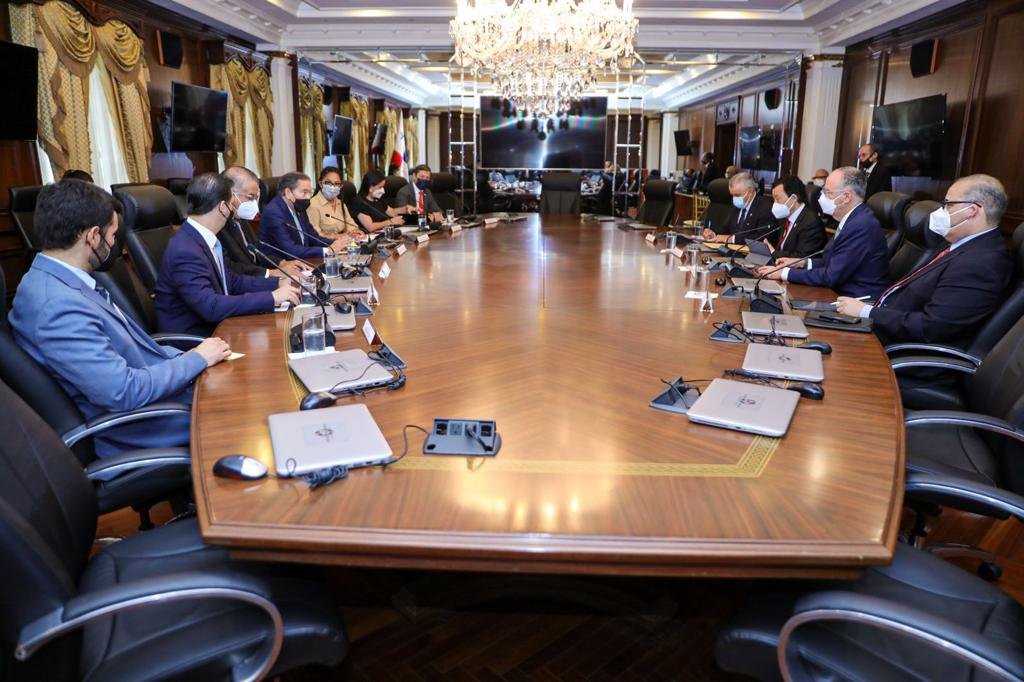The Minister of Commerce and Industries (MICI), Ramón Martínez met with a delegation of members of the State Assembly of California, United States (USA), within the framework of a work tour they are carrying out in the country.
Assembly members José Medina, Jacqui Irwin, Robert Rivas and Freddie Rodríguez were received by the head of the MICI together with the Vice Minister of Foreign Trade, Juan Carlos Sosa, and the General Director of Investor Services, Daniel Yau, who provided them with information on the advantages of the country in commercial and tourist matters, due to its air, maritime and land connectivity, the 23 free trade agreements that it maintains in force and its special regimes.
"Panama plays a crucial role in terms of supply chains, so it is important to encourage California companies to move their manufacturing plants to our country and to be able to serve the East Coast," said Minister Martínez.
He recalled that, as part of these efforts, the MICI is also carrying out an agenda with the US State Department to assess the opportunities offered by the nearshoring trend, since the country is promoted as the ideal place to attract manufacturing companies and bring their products closer to the destination market, through the EMMA licensing system.
Among other topics, the MICI authorities presented the benefits of the Bloomberg LATAM Forum that will take place next May, the options that Panama offers for the film sector, as well as the campaign that is being carried out to arouse the interest of international production houses.
Likewise, the choice of Panama as the fifth best country to retire and its recent contributions to Tourism as a Homeport for Norwegian and Royal Caribbean were highlighted.
Within the economic reactivation actions of the government of President Laurentino Cortizo Cohen, an aggressive promotional agenda is being developed to attract investments, mainly sustainable, considering that Panama is one of the 3 countries worldwide to be carbon negative. In this sense, it was indicated that energy and food security will be essential issues in the near future, for which initiatives will be proposed that seek to encourage the transfer of knowledge in the field of innovation and agricultural technology since California has extensive experience in this aspect.
For his part, Assemblyman José Medina stated that there is interest on the part of the California State Assembly for the progress of economic recovery and unemployment in the region. Likewise, he said that there are good expectations regarding the Bloomberg Forum in Panama, while emphasizing that there are Californian companies interested in investing in Panamanian territory.












